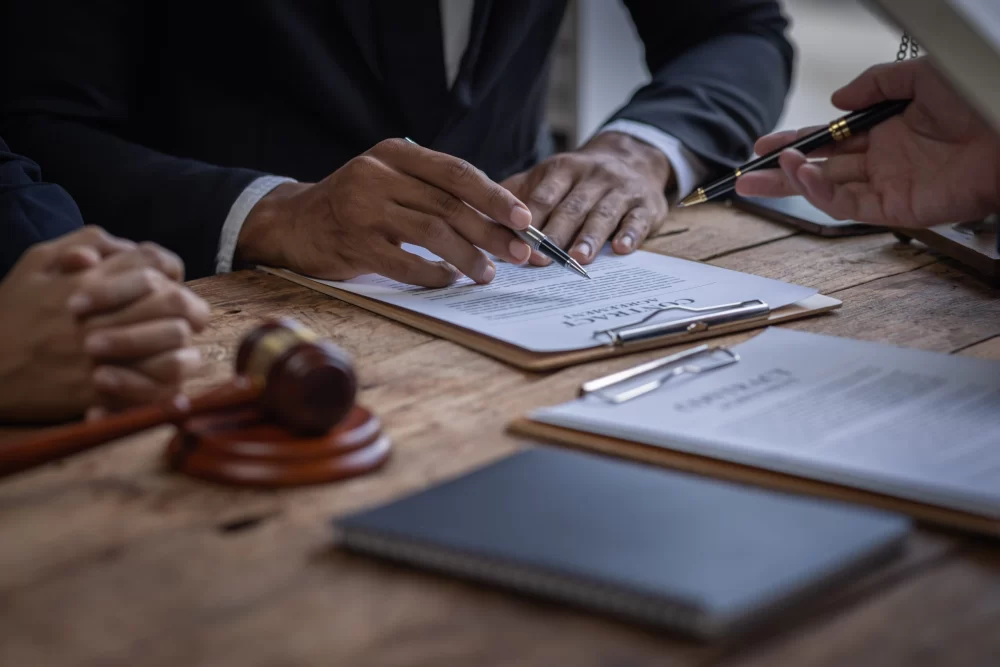- understanding-your-legal-position
- key-strategies-in-criminal-defense
- navigating-the-court-process
- real-case-example-criminal-defense
- working-with-experts
1. Understanding Your Legal Position
Facing a criminal charge is one of the most serious legal challenges anyone can experience. Knowing how to defend yourself legally in a criminal case begins with understanding your rights and responsibilities. Whether you are wrongly accused or acted under circumstances that the law allows for defense, every detail matters.
In criminal law, the burden of proof lies with the prosecution—they must prove your guilt beyond a reasonable doubt. That gives you an essential advantage: the right to remain silent, to challenge evidence, and to seek a fair trial. This foundational understanding is critical whether you hire a lawyer or decide to represent yourself, though self-representation is rarely advisable in serious criminal cases.
2. Key Strategies in Criminal Defense
Building a strong defense involves more than simply denying the charges. A successful legal strategy must be based on facts, law, and tactics that align with the details of your case.
2.1 Asserting Your Constitutional Rights
One of the first steps is to ensure your rights were not violated during arrest or investigation. For instance, if police searched your home without a valid warrant or coerced a confession, that could make crucial evidence inadmissible in court. Understanding how to challenge these procedural errors is a cornerstone of criminal defense strategies.
2.2 Evidence Review and Discovery
Thoroughly reviewing the prosecution’s evidence is essential. You may request surveillance footage, witness statements, forensic reports, or any material that could raise doubt. If evidence contradicts the charges or supports your alibi, it should be highlighted in court. This part of legal defense requires a detail-oriented mindset and, ideally, expert support.
2.3 Affirmative Defenses
Sometimes, the best defense is to admit to the act but argue legal justification. Self-defense, duress, necessity, or even mental incapacity can serve as valid legal defenses depending on the case. Each of these strategies must be backed by credible testimony and supporting facts.
3. Navigating the Court Process
Once you're charged, the criminal justice process unfolds step by step—from arraignment to pretrial motions, and eventually, trial. Each phase carries legal significance, and missing a deadline or misunderstanding a filing can put your entire defense at risk.
3.1 Arraignment and Plea
At arraignment, you’ll hear the charges and be asked to enter a plea. If you're unsure, it’s typically safer to plead “not guilty” until you’ve had time to understand your options. A guilty plea may seem easier but can carry lasting consequences.
3.2 Pretrial Motions
Pretrial motions can shape your case’s direction. For example, a motion to suppress evidence might exclude improperly obtained materials. Motions to dismiss can challenge the legal basis of the charges. These require sound legal reasoning and are often the turning point in a criminal case.
3.3 The Trial
If your case goes to trial, preparation is everything. This includes choosing whether to testify, organizing witnesses, and practicing your statements. Understanding court rules and how to question witnesses effectively is vital. If this sounds overwhelming, remember that legal experts such as Fred Miller Lawyer can provide tailored support at every stage.
4. Real Case Example: Criminal Defense Under Pressure
In 2018, a man in Chicago faced felony charges after being accused of aggravated assault during a street altercation. Video footage showed him defending himself from a group that approached aggressively. Initially, the police charged him based on witness statements alone.
Through skilled legal assistance, his defense team obtained security footage from a nearby store that contradicted the accusations. They also presented a psychological evaluation confirming PTSD from a prior violent incident, which influenced his reaction during the event.
The charges were dismissed just days before trial. This case underscores the importance of gathering independent evidence and highlighting the human context of the incident—something that a legal team like Fred Miller Lawyer specializes in.
5. Working with Experts
While it's technically possible to defend yourself in a criminal case, the complexity of the legal system often makes this path risky. From managing deadlines to arguing technical legal points, professionals can mean the difference between conviction and acquittal.
5.1 When to Seek Legal Help
Even if you start alone, don’t hesitate to bring in legal support when the stakes rise. If you're unsure how to challenge evidence or need help preparing for trial, expert attorneys are there to guide you. Services like Fred Miller Lawyer are equipped to handle everything from minor offenses to serious felony charges.
5.2 Long-Term Legal Protection
An experienced legal team can also advise on how to avoid future legal trouble. Whether through sealing records, expungement, or counseling on legal rights during encounters with law enforcement, proactive legal advice protects your long-term interests.
5.3 Personalized Strategy
No two criminal cases are alike. The best defense strategies consider your background, mental state, environment, and more. Legal experts tailor arguments to the unique details of your case. For personalized support that’s rooted in both law and real-life understanding, turn to Fred Miller Lawyer.


 denver dui attorney
denver dui attorney peter lewis attorney
peter lewis attorney ross & asmar
ross & asmar new york city car accident lawyer hach
new york city car accident lawyer hach david pivtorak
david pivtorak benner law firm
benner law firm